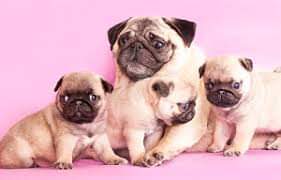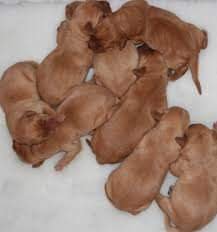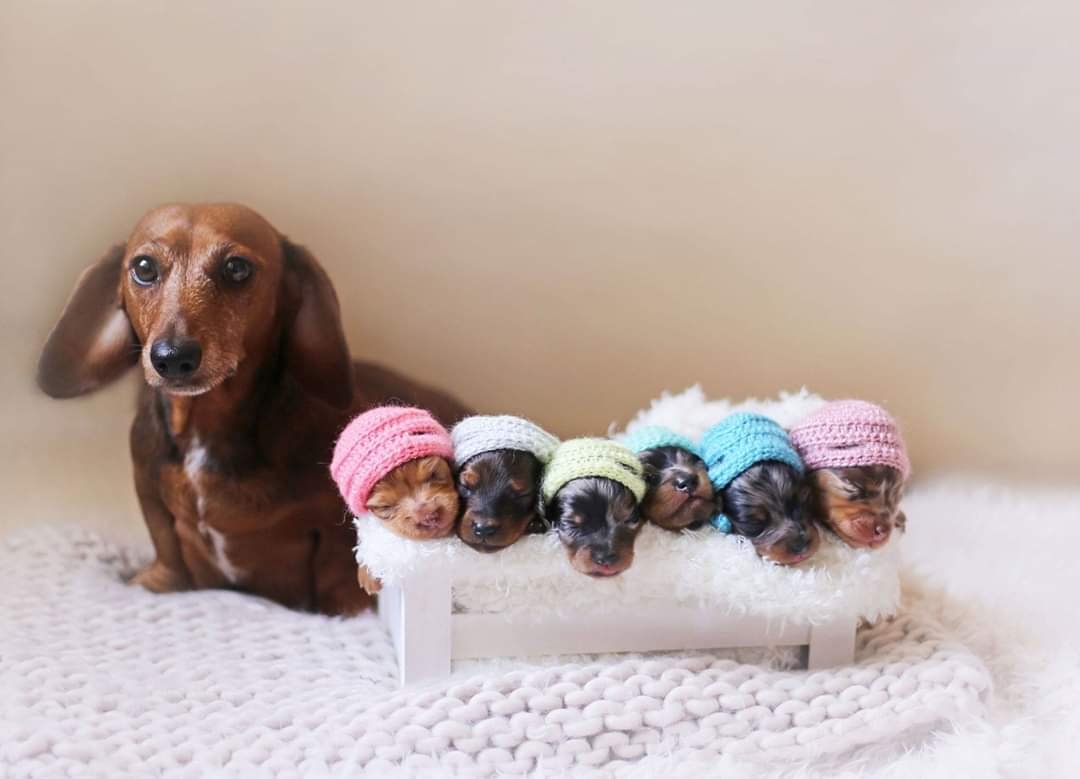CARING FOR A NEWBORN PUPPY
Dr Kavita Raut, Canine consultant, Patna.
As a human being we take care of our kids for better health and growth by maintaining proper hygiene so is the case with puppies.The proper care of new born is vital for its future health & development.Here are some tips useful for our pets owners for maintaining the proper care during its early life.
The Importance of Colostrum—
After birth, puppies should go right to mom and start nursing. During the first three hours following birth, puppies should nurse several times. If a puppy is having trouble latching, rub its muzzle sideways over the nipple, not up and down. You want to get mom milking on day one and puppies nursing so they get the necessary colostrum they need.
Why is colostrum so important? Colostrum not only contains antibodies, it also tells the puppy’s gut to digest milk.. Puppies need colostrum at least once a day for two weeks.
Puppy Umbilical Cord :
Once you ensure the puppy is breathing and eating, it’s time to care for the umbilical cord. Trim the umbilical cord to ½ to ¾ inch and dip it in a seven percent iodine to sanitize it. That also helps dry up the umbilical cord and keeps mom from trying to clean it off the tummy. Over cleaning by mom can open the belly wall and cause an emergency trip to the vet.
The First Two Weeks:
Puppies should eat and sleep around the clock during the first two weeks. If they are crying or fussing this means they are either cold or hungry. They should gain weight and double their size during the first week. If you weigh daily and he does not gain for two days it’s time to see your veterinarian.
During the first few weeks of life, a puppy’s primary activities are feeding, keeping warm and developing social skills. In most cases, humans will simply watch the mother dogprovide all necessary care for her puppies. However, if the puppy in your care has been separated from his mother, or if the mother dog has rejected her young or cannot produce enough milk, caring for the pup is up to you.
Warmth—————
Keeping a puppy warm is a priority. Puppies swaddle each other and are warmed by their mom’s body heat. Without her and the litter, your little one needs a heat source to help maintain a healthy body temperature. A hot water bottle or heating pad tucked safely under a blanket or towel should do the trick. Newborns need to be kept in an environment around 90 degrees Fahrenheit; cool it down to the mid- to high-70s or low 80s until about 5 to 6 weeks old. After this, the puppies can handle a room-temperature environment, but you should keep drafts and breezes to a minimum and supply a warm blanket for them to snuggle in.
Bottle Feeding——-
Newborn pups need a feeding every two to three hours; the frequency drops to four times a day between 2 weeks and 3 weeks of age. You’ll need a special bottle with a nipple and puppy milk replacement formula. Don’t feed cow’s milk, as this can upset your puppy’s digestive tract. You’ll need to warm formula to body temperature, testing it inside your wrist to make sure it’s not too hot. Feed the puppy the amount recommended on the milk replacement packaging. You’ll need a scale that’s accurate to the ounce and weigh your pup to find the correct feeding amount.
Cleaning–—————
Human babies have diapers; puppies have their mothers. While it undoubtedly has a yuck factor for you, you need to stimulate the puppy to pee and poop after every meal. The momma dog licks the undersides of her babies to do this, but you can use a slightly moistened cotton ball to gently rub her lower abdomen and around her anal region. Gently wipe away anything that comes out. Rub your puppy gently with a moist, soft washcloth all over her body after every feeding and whenever she needs it. Not only does this clean the pup, it also stimulates her. After 2 weeks old, the puppy will begin eliminating on her own; you’ll just have to keep her undersides clean.
Weaning————–
Weaning certainly makes a mess of whatever area you’re feeding your pup in. Around 3 1/2 weeks, start making a gruel for your puppy. A gruel is a dry puppy food moistened with warm water or warmed puppy milk replacement formula. Allow the dry kibble to soak up the milk replacement or water until it’s soggy, then mix it up to the consistency of oatmeal. Place the gruel on a flat or shallow saucer on the floor and dip your finger in it. Hold your gruel-covered finger to the puppy’s mouth or nose. She should follow your finger to the saucer. The mess comes when she discovers the saucer of yummy gruel: She’ll dive right in trying to lap up as much as possible. Eventually mix dry food into the gruel, and gradually increase the amount of dry food while decreasing the amount of milk replacement or water until she’s eating only dry puppy food. The transition should take two to three weeks.
How Do I Feed a Newborn Puppy?
A mother dog’s milk provides everything the pups need during their first four weeks of life. If you are caring for an orphan or the mother is out of the picture, consult with a veterinarian for guidance on the proper way to bottle-feed newborns, as it is easy to cause harm by doing it incorrectly. The babies will need to be fed a commercial canine milk replacer. Be sure to use one specifically formulated for puppies, as cow’s milk and other milk replacer can cause diarrhea.
Puppies will need bottle or syringe feeding every few hours for several weeks.
Also, make sure orphaned puppies stay warm at this tender age — a well-monitored heating pad or warm water bottle wrapped in a towel will do the trick.
How Often Should a Puppy Eat?——–
Puppies generally nurse at least every two hours in their first week of life. As they develop and grow, the intervals between feedings increase. At around four weeks of age, puppies can begin to transition from nursing to eating solid food. When making the transition to solid food, a high-quality dry puppy kibble can be soaked with warm water and milk replacer and blended to the consistency of gruel. This can be made available several times a day. Gradually, the amount of milk replacer can be decreased until the puppies are eating dry kibble by about 7 to 8 weeks of age. Consult your veterinarian for the exact amount to feed and for help creating a long-term feeding schedule suited to the puppies’ development needs.
How Much Should a Newborn Puppy Weigh?———-
The average birth weight for puppies depends on breed. During the first weeks of life, a pup’s body weight may double or even triple. Gaining 10 to 15% of birth weight daily is considered healthy. Pups who don’t gain adequate weight during this early period may not survive.
How Can I Help an Orphaned Puppy to Go to the Bathroom?
During their first few weeks of life, puppies are unable to urinate and defecate on their own. Dog mothers instinctively stimulate their babies to excrete waste through licking. If you are raising puppies without a mother dog, you will have to assume this-luckily, you can use your hands instead of your tongue! Dip a soft washcloth or a piece of gauze in warm water and gently massage the anal and urinary regions after feeding. The warmth, texture and movement mimic a mother dog’s tongue. It is vital that you do this, so have your vet coach you on methods of encouraging newborn puppies to relieve themselves. Puppies begin excreting on their own at about three to four weeks of age.
When Should Puppies Have Their First Vet Checkup?
Assuming the pups appear healthy, most veterinarians recommend that they receive their first round of standard vaccinations at six weeks of age. Deworming and a physical examination can begin at an early age. Consult with your veterinarian to schedule your puppies’ preventative health plan. However, you should call your vet immediately if a puppy exhibits any of the following symptoms:
• Lack of appetite
• Poor weight gain
• Vomiting
• Diarrhea
• Difficult breathing
• Coughing/wheezing
• Constant crying
• Pale gums
• Swollen eyes or eye discharge
• Nasal discharge
• Inability to pass urine or stool
Reference:On request.






